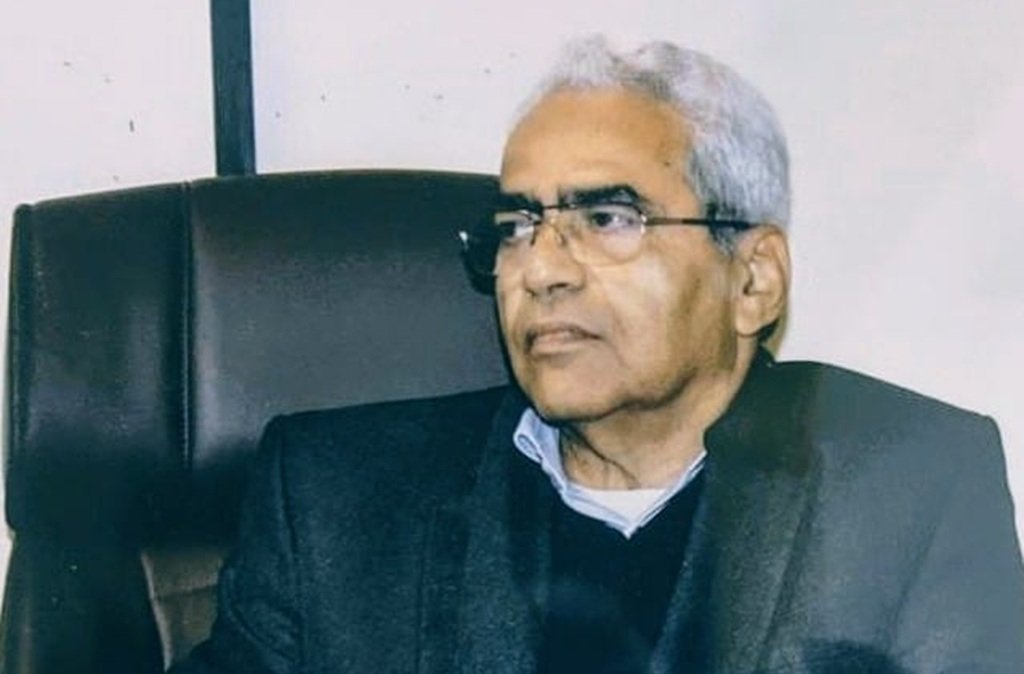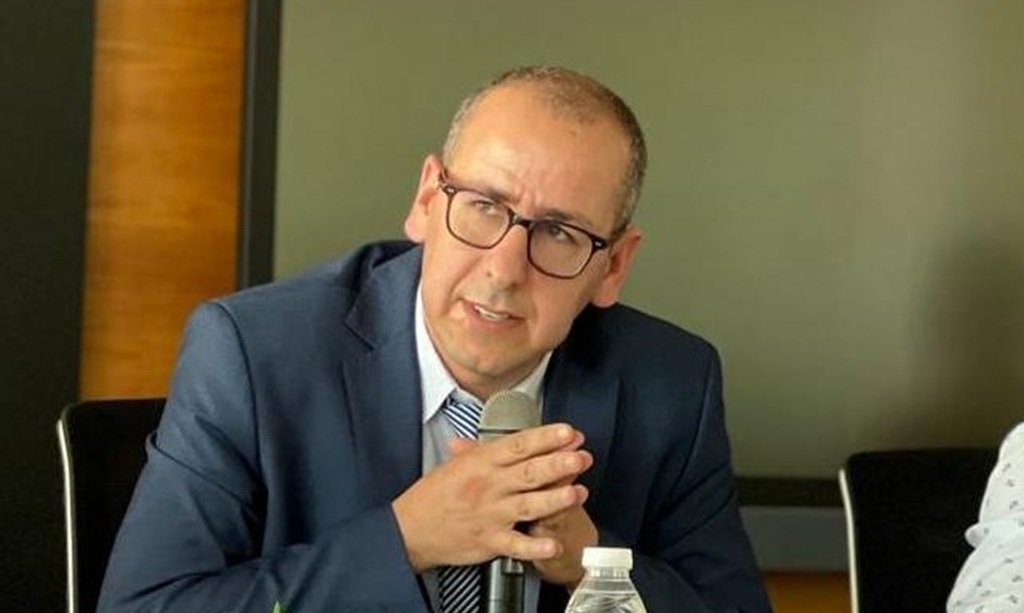Gaza and the Veto: How the Conflict Exposes the Security Council's Limits

Dr. Abdel Fattah Awda (former professor of higher education at Hassan II University in Casablanca)
Dr. Mohamed El Amin El Bakkali El Tahiri (Visiting Professor at Abdelmalek Essaadi University in Tetouan)
The Security Council is the permanent organ of the United Nations. It acts on behalf of the Member States in carrying out its duties related to the maintenance of international peace and security, and enjoys broad powers in this regard. The Charter authorizes it to establish committees necessary to assist in the performance of its duties, such as the Committee of Experts, the Committee on the Admission of New Members, and the Military Staff Committee, which consists of the Chiefs of Staff of the permanent members to provide military advice to the Council.
The Council may exercise its powers alone or in conjunction with other branches of the United Nations, such as:
* Assisting the organization’s branches: The Council makes recommendations to the General Assembly on specific matters such as the admission of new members, the suspension or expulsion of a member, and the election of the Secretary-General and the judges of the International Court of Justice.
* Settlement of disputes by peaceful means: The Charter requires states in conflict to resort to peaceful settlement. The Council has the right to call on the parties to a dispute to resolve their differences by peaceful means, and if they fail, they must submit the dispute to the Council.
* Cases of threat or breach of peace: In serious situations, the Council determines whether there is a threat to the peace or an act of aggression, and decides on the measures necessary to restore the situation to normal.
When peaceful methods fail, the Council may resort to coercive measures, including the use of armed force, in gradual stages:
* Temporary measures: The Council calls on the conflicting parties to take interim measures to prevent the situation from escalating, such as a ceasefire.
* Non-military measures: If the parties fail to comply with the interim measures, the Council can impose harsh measures not requiring the use of armed force, such as an economic blockade and the severance of communications and diplomatic relations. This type of sanctions was used against Iraq after its invasion of Kuwait, and against other countries such as Sierra Leone and Lebanon.
* Use of armed forces: If non-military measures fail, the Council may decide to use military force, and shall implement these measures with the assistance of Member States, which undertake to provide the necessary forces and assistance.
Despite its broad powers, the Security Council has faced severe criticism for its selectivity in dealing with international crises. Some believe that the application of Chapter VII of the Charter to Iraq after its invasion of Kuwait was motivated by political considerations related to US hegemony after the collapse of the Soviet Union. The Council has been accused of becoming a tool in the hands of some major powers to achieve their political goals, as happened in Iraq and Afghanistan (1).
US policy toward Israel is an example of this criticism, as it has repeatedly used its veto power to thwart draft resolutions condemning Israel and related to the Palestinian issue. This repeated use of the veto reveals the United States' dominance over the international institution and its use of it as a tool to achieve its own interests, thus violating the principle of state sovereignty.
Therefore, the issue of reviewing the Charter, particularly the structure of the Security Council, remains vital to achieving balance between the Council and the General Assembly, and to democratize the international organization.
Within this trend, it is noticeable that there is a torrent of criticism directed at the United States of America and its policy towards the Israeli-American aggression on Gaza. In a strongly worded open letter, members of the Arab Legal Committee for the Prosecution of War Criminals in the Zionist Entity addressed an urgent appeal to the Norwegian Nobel Peace Prize Committee, calling for the rejection of any nomination of US President Trump for the prize for the year 2025, considering that this nomination, if it takes place, will constitute an insult to the spirit of the prize and its humanitarian principles and an endorsement of one of the greatest symbols of incitement to war and genocide” (2).
Trump's record is full of unconditional support for the Israeli occupation, including:
- His role in obstructing Security Council resolutions to stop the war on Gaza.
- Inciting against the International Criminal Court and imposing sanctions on its judges.
- His direct support for war criminals, headed by Benjamin Netanyahu.
- His clear threat to world peace and his recent attempts to fuel regional conflicts that may herald a third world war. The letter also emphasized the recent judicial decisions issued by the International Court of Justice and the International Criminal Court, describing them as “a historical precedent in breaking impunity and confronting war crimes in Palestine…” (3)
The US position in the UN Security Council embodies absolute bias towards Israel and constitutes complicity in the genocide committed in the war on Gaza. On June 4, 2025, the United States of America used its veto power against a draft resolution in the Security Council calling for an immediate, permanent and unconditional ceasefire in Gaza, submitted by the ten non-permanent member states of the Council. Only 14 members of the 15-member Council voted in favor of the draft resolution, which means that the United States of America is standing in the way of the will of the international community, which represents the Security Council, the executive body of the United Nations in maintaining international peace and security. America justified its position through the acting US representative to the United Nations, Dorthy Shiban, saying: “The United States has been clear: We will not support any action that does not condemn Hamas… Any resolution that undermines our close ally, Israel, is completely unacceptable…” (4). China’s permanent representative to the United Nations, Fu Cong, explained that the result of the vote on the aforementioned draft resolution reveals once again that “the root cause of the Security Council’s inability to calm the conflict in Gaza is the repeated obstruction by the United States of America…” (5). Washington has once again misused its veto power to extinguish the glimmer of hope for the people of Gaza, adding that he said: That: “Respect for international humanitarian law is an obligation that all parties must fulfill… Any double standards or selective application will only erode the foundations of the rule of international law and must be categorically rejected.” (6)
It is also worth noting that the excessive use of the veto power by the permanent members of the Security Council, especially the United States of America, hinders its primary mission of maintaining international peace and security. Since the founding of the United Nations in 1945 until February-June 2025, the number of times this right has been used has reached 293 times, distributed as follows:
-The Soviet Union and its successor Russia 143 times.
- United States of America 83 times.
-France 18 times.
-China 16 times.
It is worth noting here that the United States has actually used its veto in the UN Security Council until April 2024, 46 times against resolutions condemning Israel out of 83 times it has used this right. In general, it can be said that the repeated use by the United States of America, which has reached 46 times in favor of Israel since 1948, is more than any other country in the world. This is in addition to other steps to support Israel during the aggression on Gaza, such as:
- Providing $38 billion in military aid$ to Israel.
- Obstructing the issuance of a Security Council statement condemning the Israeli aggression on Gaza.
- Pressuring Arab and Islamic countries not to take action against Israel. (7)
conclusion:
This repeated failure of the Security Council and its role in maintaining international peace and security has urgently raised the issue of reforming this Council, which is a very complex matter. This reform aims to modify the structure of the Council so that it works to make it more representative and effective in maintaining international peace and security. These proposed reforms include a number of issues related to membership categories, the right of veto, the issue of regional representation, the size of the Council, and its working methods. This reform aims, in one way or another, to increase the legitimacy of the Council, improve its effectiveness, and enhance international cooperation. However, the issue of reforming the Security Council remains extremely complex because it relates to amending the United Nations Charter, which requires the approval of the member states in addition to all five permanent members of the Security Council. This naturally requires broad international consensus, which is currently impossible to achieve due to the extent of the contradictions existing among the countries of the world, especially among the permanent members of the Security Council, within the framework of preserving this privilege granted to them in the aftermath of World War II and the establishment of the United Nations.
References:
- Mohamed El Amine El Bakkali El Taheri and Awda Ali Abdel Fattah, International Organizations: An Authentic Study of the United Nations, Seliki Akhwain, Tangier, 2021.
- Dr. Marwan Lamashhar, Radical Changes Among the New American Generation Against Israel... Al-Quds Al-Arabi Newspaper, 06/23/2025, London.
- Nabil Bakani, an Arab legal committee active in prosecuting Israeli war criminals... Rai Al-Youm electronic newspaper, August 8, 2025, London.
(4) “The United States has been clear: We would not support any measure that fails to condemn Hamas...”
As stated by the Acting US Ambassador to the United Nations, Dorothy Shea, before the veto vote in the UN Security Council on June 4, 2025.
(5) “The root cause of the council’s inability to quell the conflict in Gaza is the repeated obstruction by the US.”
Statement by China's Permanent Representative to the United Nations, Fu Cong, commenting on the results of the vote on the draft resolution.
(6) - See also: United Nations website, United Nations News, Global Perspective, Humanitarian Stories, dated September 26, 4/22/2024, visited on 25 on August 8, 2025.
(7) Although international law also cries out for violations, the Fourth Geneva Conventions explicitly prohibit the starvation of civilians as a method of warfare, and the Rome Statute defines the deliberate deprivation of food as a war crime and a crime against humanity. The International Criminal Court even issued an arrest warrant against Netanyahu and Galant for using starvation as a weapon that aims to partially physically destroy a specific population group. This is what is happening in Gaza due to the ongoing Israeli aggression for more than 22 months (see Dr. Khaled Al-Shaqran, Gaza is a stain on the brow of humanity, Al-Rai Jordanian newspaper, 06/08/2025, Amman).







